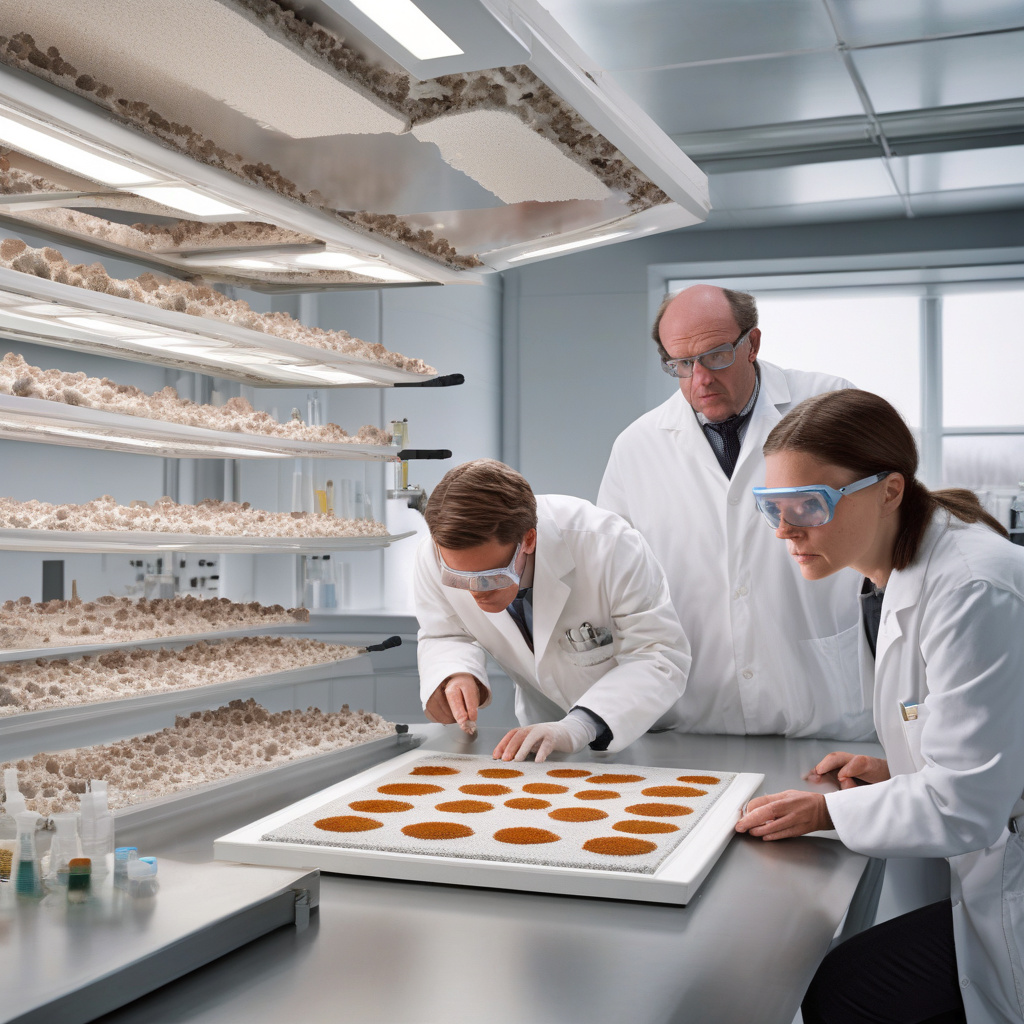Fungi-Based Insulation Boards: A Sustainable Solution for the Future
Researchers in Germany have created a mushroom-based insulation material that could offer a greener, compostable alternative to traditional insulation boards. This innovative product not only provides excellent thermal insulation but also boasts the ability to resist mold and absorb carbon dioxide from the atmosphere, making it a promising solution for sustainable construction practices.
The team of researchers at the University of Stuttgart has developed insulation boards using mycelium, the root structure of fungi, as a binding agent. By combining agricultural waste such as corn stalks or hemp with mycelium, they have successfully created a lightweight and durable material that can be molded into various shapes and sizes to fit different construction needs.
One of the key advantages of these fungi-based insulation boards is their ability to resist mold growth. Traditional insulation materials, such as foam or fiberglass, are susceptible to mold in moist environments, posing health risks to inhabitants and requiring costly maintenance. In contrast, the natural properties of mycelium make the insulation boards resistant to mold, providing a healthier indoor environment for occupants.
Furthermore, the use of mycelium-based insulation boards can help reduce the carbon footprint of buildings. During the growth process, mycelium absorbs carbon dioxide from the air, effectively sequestering the greenhouse gas and reducing the overall carbon emissions associated with construction. This carbon-negative feature sets the fungi-based insulation boards apart from conventional materials, making them a more environmentally friendly choice for builders and homeowners alike.
In addition to their environmental benefits, these insulation boards offer excellent thermal performance, helping to regulate indoor temperatures and reduce energy consumption. The natural structure of mycelium creates a network of tiny air pockets within the material, providing effective insulation against heat transfer. This can result in lower heating and cooling costs for buildings, contributing to long-term energy savings.
The versatility of mycelium-based insulation boards also allows for creative design possibilities in architecture. From curved walls to custom-shaped panels, the moldable nature of the material enables architects and designers to explore innovative solutions for sustainable building projects. Whether used in residential homes, commercial buildings, or even furniture design, fungi-based insulation boards offer a unique combination of functionality and eco-friendliness.
As the demand for sustainable construction materials continues to grow, the development of fungi-based insulation boards represents a significant step towards a more environmentally conscious building industry. By harnessing the natural properties of mycelium, researchers in Germany have demonstrated the potential for fungi to revolutionize the way we think about insulation and carbon sequestration in construction.
In conclusion, the innovative use of fungi-based insulation boards not only provides a sustainable alternative to traditional materials but also offers unique benefits such as mold resistance, carbon sequestration, and energy efficiency. With ongoing research and development in this field, we can expect to see more eco-friendly solutions like mycelium-based products shaping the future of construction and design.
sustainableconstruction, greeninnovations, myceliuminsulation, carbonsequestration, ecofriendlymaterials










